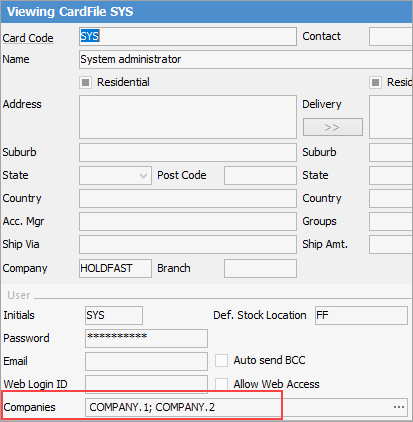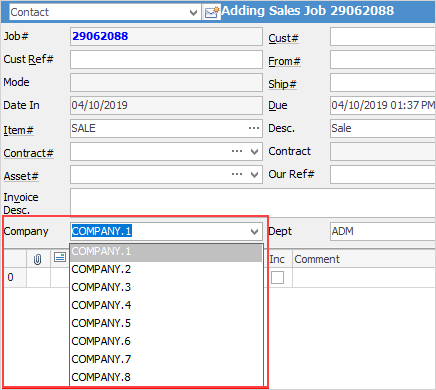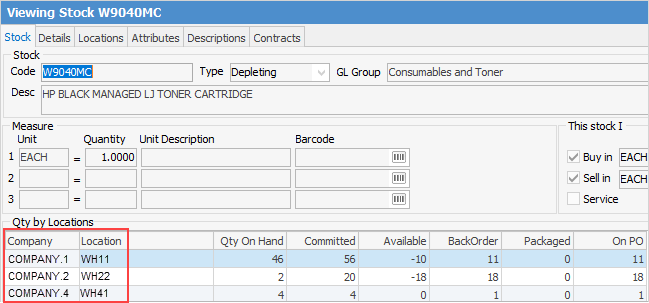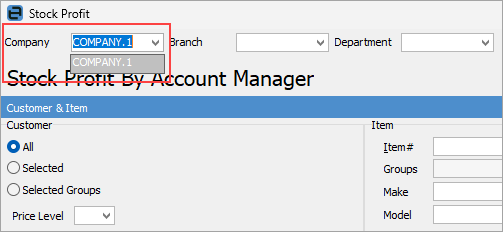Jim2 Multi-Company allows for running one database with up to 255 companies (all using the same base home currency) and different ABNs.
This allows operation from one combined Jim2 database, eliminating the need to log on and off different company databases, and providing a consolidated view of debtors, creditors and business analysis reporting. If converting to Jim2 Multi-Company, the old databases are available so users can access transaction history.
▪Security is universal for all companies (including Document security), and cannot be set on individual companies. ▪Company selection appears in most areas within Jim2, much like the branch selectors. Users are configured with a default company, as applicable.
▪The sys cardfile should be set up for access to all companies.  ▪Users can be set up to access one or more companies, and security can be set for them to view and/or edit, meaning there can be one account manager across all companies, if desired. ▪All companies must use the same base currency, and the general ledger accounts must be identical across companies. ▪GST can only be set to one type for all businesses, ie. all companies are accrual or all are cash. Different methods cannot be set for different companies. However, GST sessions can be run monthly, quarterly, etc. for individual companies. ▪Debtors and creditors are common, providing a consolidated view of both across companies. ▪Stock codes are shared across companies.
▪Stock on hand location visibility is restricted based on a user's security for company access. ▪Stock locations are company-specific and can be shared to all, some or no companies for intercompany purposes.  ▪Where stock is sold between companies, this will streamline stock movements. ▪Inter-company stock transfers can be performed, along with intercompany sales.
▪Reporting and list filtering across companies is available.
▪Object groups are shared across all companies. ▪Email templates can be shared across all companies., however email editor rules can only be set up for individual companies.
▪Email rules, accounts and tags are shared across all companies. See Email for more information on general email setup. ▪Branches can also be used for individual companies. ▪Checking for duplicate customer references is across all companies. ▪Serial number tracking is at company level (to cover buy/sell between companies). ▪Object numbers (invoice#, Job#, etc.) are shared across companies with the option of having a company prefix available on external forms such as invoices, if required.  ▪Watchouts are not company specific. |
Jim2 Multi-Company is perfect for: ▪businesses requiring consolidation ▪businesses who trade between each other ▪businesses that are similar but have different ownership structures.
Jim2 Multi-Company is not suitable for: ▪different businesses that don’t have the same base home currency ▪more than one account manager per customer is required across all companies ▪stock files are not common across all businesses. |
Further information
Multi-Company Stock Locations Setup
Multi-Company Company Accounts
Multi-Company Intercompany Costs Transfer
Multi-Company Intercompany Purchases
Multi-Company Intercompany RFC and RTV
Multi-Company Inter-Company Stock Availability and Usage
Multi-Company Inter-Company Stock Transfers
Multi-Company Quotes, Jobs, Purchases
Multi-Company Transfer Accounts Between Companies
Multi-Company Transfer Funds Between Companies
Multi-Company Close Financial Year



